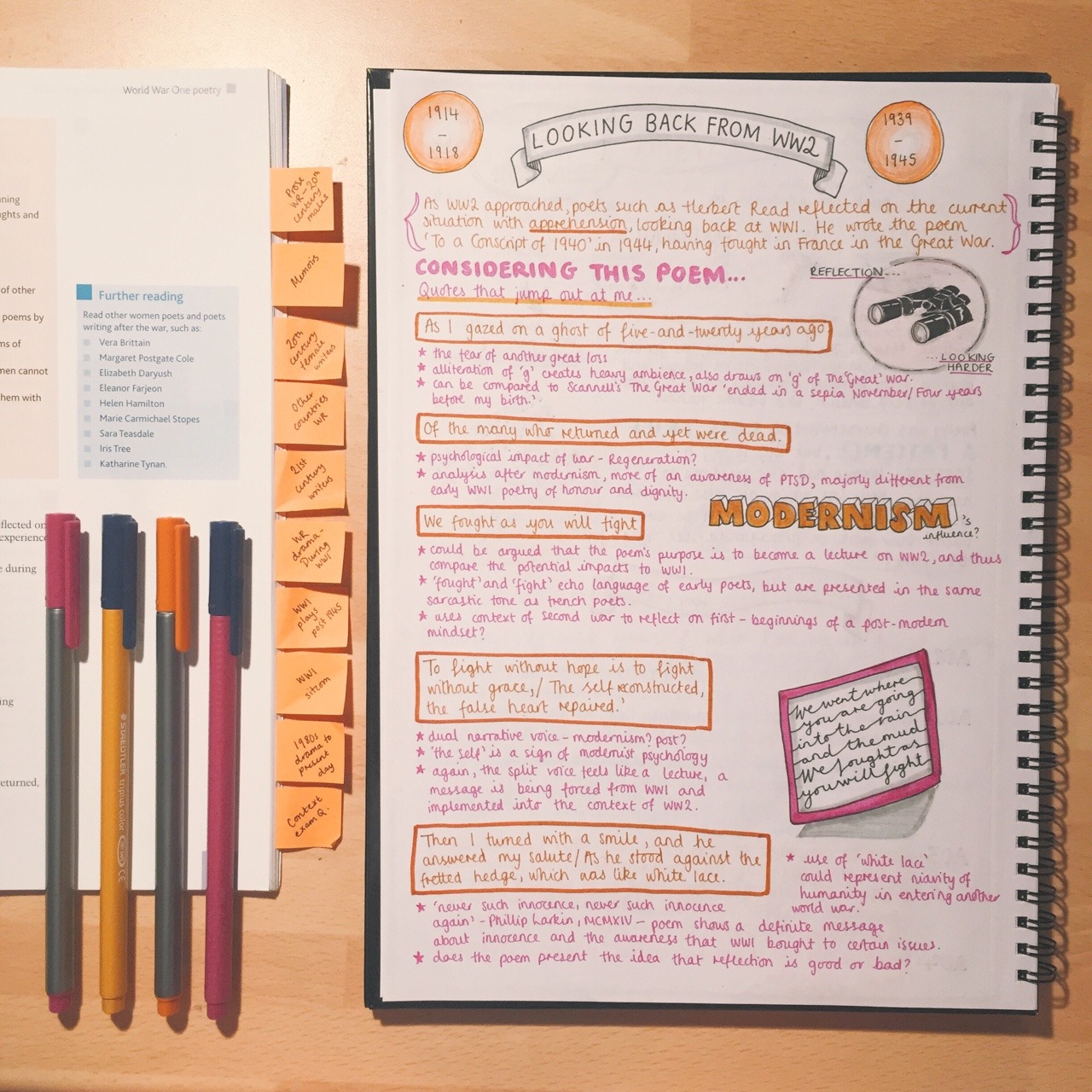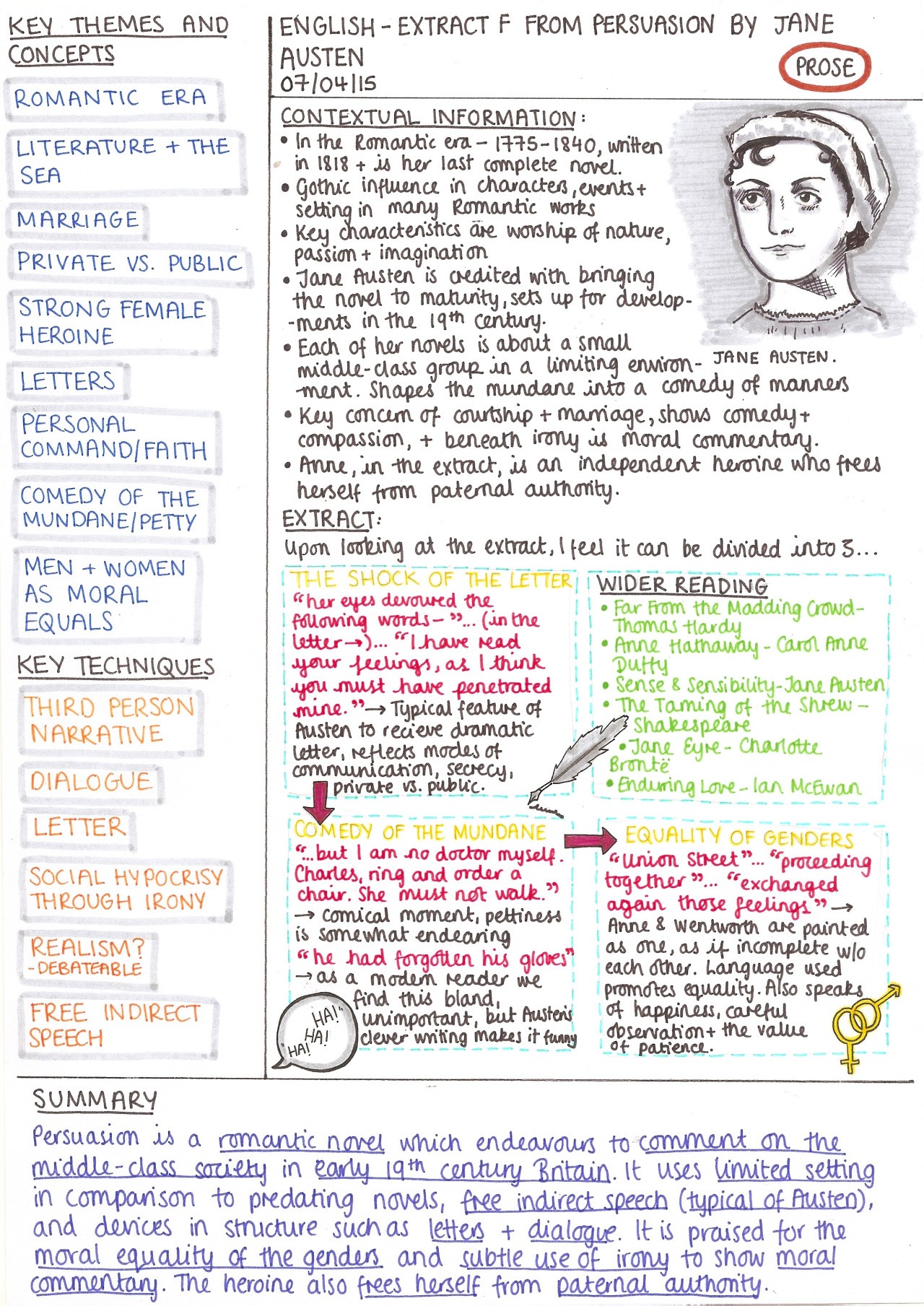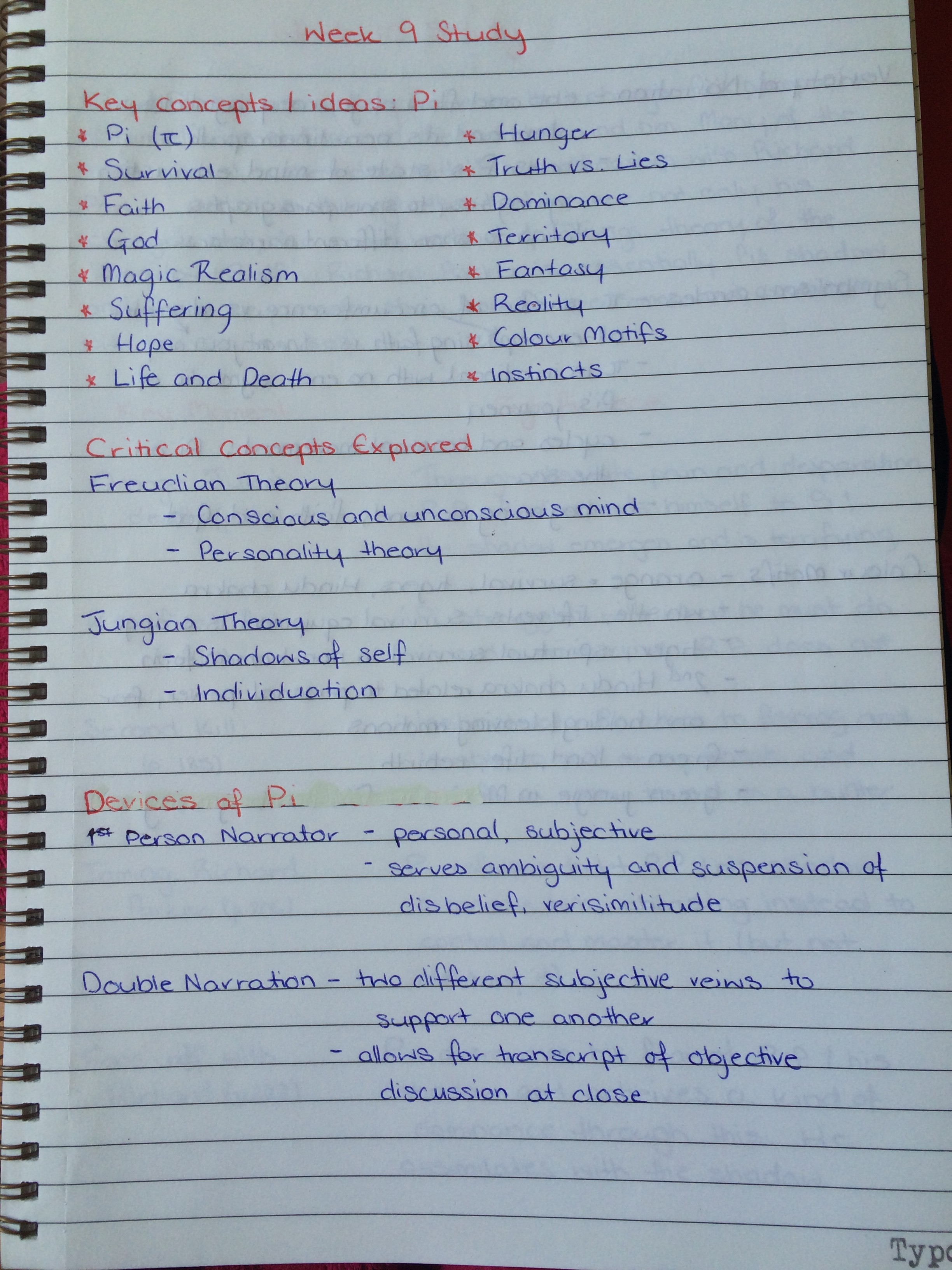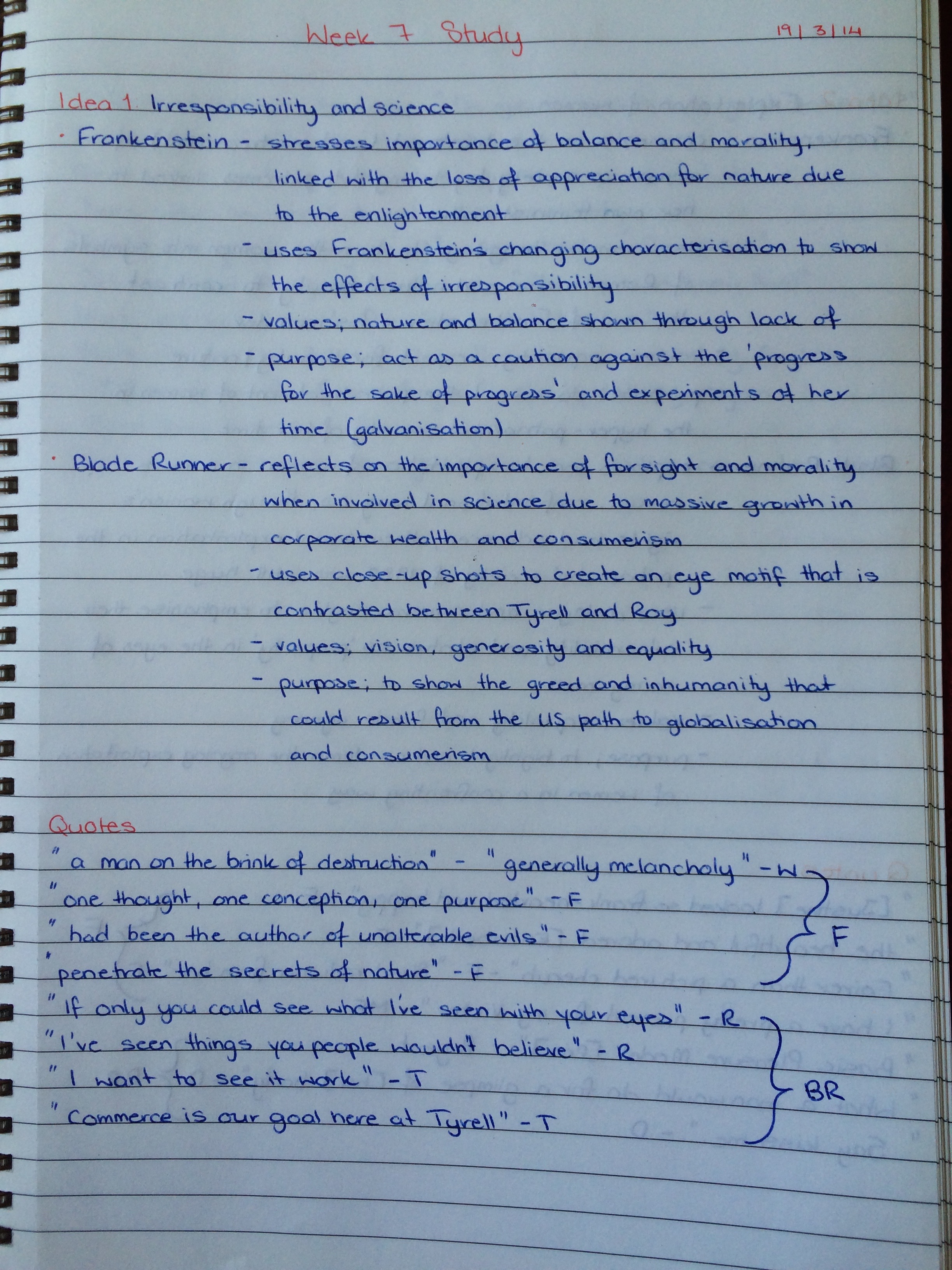I’d started writing study notes for all of my other subjects, but English was just… well weird.
In all the other subjects, I could just pull out the syllabus, and follow it dot point by dot point, but with English, I was lost and confused.
Should I structure it around a text? Or do I structure it around a topic or theme? Do I use dot points or paragraphs?
Does this sound familiar?
In this article, we’ll show you exactly how to structure, then write your HSC English study notes in three easy steps so you can stay on top!
Step 1: Structuring Your HSC English Notes
Step 2: What to Include
Step 3: Writing Your HSC English Notes
Step 1: Structuring Your HSC English Notes
Let’s start with the fun stuff.
When it comes to the layout of your study notes there are two things you need to consider:
- How it will look.
- How you’ll break down information.
The Look
This is all about the aesthetics of your HSC English notes, but don’t think this is something you can just skip over!
There’s more to it than just grabbing some highlighters and going wild.
When you think about the aesthetics of note you want to be thinking about things like colour, font, size, etc. and how you’ll use those things to organise information.
You may want to write your headings for your prescribed text in one colour, and your related text in a different colour – whatever works for you.
Lately there’s also been a growing trend of artistic note taking, which involves going that one step further and turning your notes into a kind of artwork by using different styles, colours, etc.
It takes a little longer to achieve, but for those who find note taking boring it can really add some fun to the process!
Image from reviseordie.com
The Layout
This is a bit more important, as the layout of your notes can help make them super effective and easy to read.
Most people already know if there’s a particular way they like to structure their notes, but if you don’t, there’s a few common styles to choose from.
Common note taking structures include:
- Dot points
- Mind maps
- Flow Charts
- Full paragraphs
- Diagrams
Of course, not every style works as effectively for every kind of information, so there are some times where you may need to mix it up to get the most out of your notes.
Using a mind map when you’re outlining key themes in a text can be fun, or drawing diagrams of scenes in a play to remember the stage layout.
It’s important to do what works best for you, but make sure not to get into the habit of only ever using one note taking style – give them all a try!
Not sure what your learning style is? Find out with this great article on HSC Learning Styles!
You can also mix and match styles within a specific section of notes, and creating ‘set’ layouts for different notes styles can help boost your memory and organisation.
For example:
- Topic Reviews – list of key terms and definitions & mind map of key themes
- Essay Plans – dot point key themes & flow chart that moves from introduction all the way through to conclusion
- Character/text analysis – full paragraphs discussing the text & dot points of key quotes/textual references
You don’t have to follow these exactly, but knowing what note taking styles work for each type of information can make it even easier to separate and organise your notes.
Plus, they break it up and prevent your notes from becoming super repetitive.
Image from reviseordie.com
The Organisation
Many students aren’t quite sure of how to organise their HSC English notes, largely because there’s no one set way to do it!
While there are heaps of ways to sort your notes, generally the 3 most popular are by topic, text and themes.
Topic
This basically involved grouping your notes based on the topic being studied, that being either your Common Module or Modules A, B and C.
This style is best for people who just want all the information in one place and don’t mind too much if they have to flick through a few pages to find the specific thing they need.
How do I do it?
Most people who use this style make notes as they work through the topic, adding to them little by little so that they end up with a set of comprehensive notes by the end of the topic. At the end of each week, sit down and make notes on whatever you covered in class that week – themes, context, characters!
Text
Pretty standard, this just involves sorting your HSC English notes based on the text you’re studying, be it related or prescribed.
People who like to have all their notes separated and all their textual references, quotes, etc. in one place usually prefer this style.
One pitfall however is that having your notes separated makes it tricky to make comments on how texts link within a topic, but if you can remember to add notes on ‘links’ at the end of each set of text notes you’ll be okay.
How do I do it?
As you study your texts, take notes on the important things you pick up on; key quotes, character analysis, important themes, etc. You can create specific pages/sections for each type of information to keep it better organised, such as collecting all your quotes in one area or making pages dedicated to each character.
Theme
This is where you sort your notes by a specific theme or idea you’re studying within a topic.
For example, if you’re studying two texts with female protagonists, one of your themes may be ‘The role of women’, so you could create a set of notes on that.
The reason this style can be a little trickier is because you have to know your themes before you can start making notes, which can lead to confusion and procrastination.
If you know your themes really well though, or you already know what themes you want to start exploring, go for it!
How do I do it?
Figure out what themes you want to explore or analyse in your texts and begin building up evidence and analysis to support it. This includes textual references, character analysis, context and any other information relevant to the theme and/or how you’re going to talk about it.
Step 2: What to Include
Figuring out what to actually write in your HSC English notes is usually where people can get a little stumped and end up losing interest or motivation.
That’s why we’ve found the Top 4 things to include in any study notes – so you don’t have to take wild guesses at what they may be!
Before we get into that, you’ll need to know where to get your information.
Obviously your prescribed and related texts are right up there, but referring to class notes and handouts is also important, as this is the information your teacher wants you to have and reflect on.
Paying attention and getting involved in class discussions is also super important, as it helps build your analytical skills and gives interesting new perspectives to consider.
Unfortunately, Sparknotes should be a last resort, and only used to fill small gaps in knowledge, not to teach you a whole topic.
Topic Overviews
Usually, topic overviews are about 2 pages long and cover the ins and outs of whatever topic you’ve been working on in class, whatever Module that may be.
The point of these is to get all the key information down in one place in a neat, succinct way so that you can go back to it whenever you need a quick refresher.
Topic overviews could include:
- Brief description of the topic/area of study/module and what it is
- Dot points on what you’ve learned, key ideas and analysis
- Glossary of key terms and descriptions
- Explanations of key themes or concepts
- Brief summaries of the texts studied + a few textual references
Text Overviews
Usually these are about 2 pages long and cover the most important features of a text based on how you’re studying it.
This means that a text overview should give you all the key information you’d need if you were to write an essay or analysis of the text.
Generally, these overviews have a section of information about the text by itself, then information about how the text relates to the topic or specific themes.
Text overviews could include:
- Brief description of the text
- Notes on the author and context
- List of key themes/concepts in the text
- Textual references and analysis sorted by theme
Theme Overviews
These are very simple, as they’re more about getting all your evidence in one place than anything else.
Usually only a page long, you start by describing the theme, what it is and how you plan to analyse it, then simply collect quotes to support your idea from each of your prescribed and/or related texts.
Theme overviews could include:
- Brief description of the theme and how to analyse it
- Textual references from prescribed text(s)
- Textual references from related texts(s)
- Notes on how the texts compare/contrast within the theme
Character Study
Generally, these notes are only a page long and only necessary if you plan to do an in-depth character analysis for one of your essays, or want to look at the technique of characterisation.
That said, notes on individual characters can never hurt, and these are the ones that give you the most room to decide how you want to write them.
Character studies could include:
- Brief description of the character and their role in the text
- List of their values/attributes/etc.
- Textual references about the character (things said/thought about them)
- Textual references from the character (things they’ve said/thought)
As you can see there’s a lot to choose from when it comes to what you include in your HSC English notes, and even then, these four options are only skimming the surface.
What you write and how you write it totally depends on your learning style and how you like to organise things, so don’t think there’s only one ‘right’ way to do it.
Even if you do choose to include one of the HSC English note structures above, you don’t have to follow it exactly!
Step 3: Writing Your HSC English Notes
While we can’t tell you exactly how to write your HSC English notes, there are a few things to consider when it comes to actually putting pen to paper.
The biggest and most important factors are time and resources, so let’s break down how to plan note writing time and give you some note writing resources!
Time Management
Writing study notes can be the biggest case of “I’ll do it tomorrow” in your high school career, which is why planning ahead is so important.
How often you write study notes is totally up to you, though we recommend you do it at the end of every topic at bare minimum.
What’s really important is planning out when you’re going to write your HSC English notes, how often and in what way.
When and how often you write your study notes go hand in hand, as they will vary based on each other.
Usually, people will write study notes weekly, fortnightly, monthly or topic-by-topic, but there are other options as well (such as text-by-text or each time you analyse a new theme).
From there you can plan when you’re going to actually write your notes; will it be every Saturday morning? Every second Friday after soccer practice? The last Sunday of each month?
It’s all totally up to you, but you have to make sure that you make a plan and stick to it.
Some example timetables you could try are:
- Weekly study notes written every Saturday afternoon
- Fortnightly study notes written after your Wednesday afternoon double English class
- Topic study notes written the Sunday morning after you finish a topic
While writing HSC English notes every week may sound dreary as anything, it’s important to know the pros and cons of each ‘frequency’ of writing notes.
Otherwise, you may end up getting into something that doesn’t quite suit how you like to work.
Weekly – great for staying on top of things and keeping your notes constantly up to date. Because you’re writing notes so frequently it means you don’t have to write more than a page or two each time.
Fortnightly – the most balanced frequency as it’s similar to weekly, just a little more spaced out. You’ll have to write a little more, but it’s still frequent enough that there shouldn’t be too much to cover.
Monthly – because it’s so spaced out many people get out of the habit with this frequency. You’ll have to write a fair bit more each time because of how infrequently you’re adding to your notes, but if you stay motivated it can work well.
Topic by topic – best for students who hate writing HSC English notes or can’t keep in a frequent habit. There will be a lot of content to cover when you write your notes, but it will be all in one concentrated effort rather than a continuous one.
Trying to improve your study notes for other subjects?
We’ve got guides for a range of subjects, which you can check out below:
- Standard Maths
- Advanced Maths
- Modern History
- Ancient History
- Biology
- Chemistry
- Physics
- Legal Studies
- Economics
- Visual Arts
- PDHPE
Looking for extra help with HSC English?
We pride ourselves on our inspirational HSC english coaches and mentors!
We offer tutoring and mentoring for Years K-12 in a variety of subjects, with personalised lessons conducted one-on-one in your home or at one of our state of the art campuses in Hornsby or the Hills!
To find out more and get started with an inspirational tutor and mentor get in touch today!
Give us a ring on 1300 267 888, email us at [email protected] or check us out on TikTok!
Maddison Leach completed her HSC in 2014, achieving an ATAR of 98.00 and Band 6 in all her subjects. She enjoys helping students through the academic and other aspects of school life, even though it sometimes makes her feel old. Maddison has had a passion for writing since her early teens, having had several short stories published before joining the world of blogging. She’s currently deferring her studies until she starts her Bachelor of Communication at UTS in the spring.








